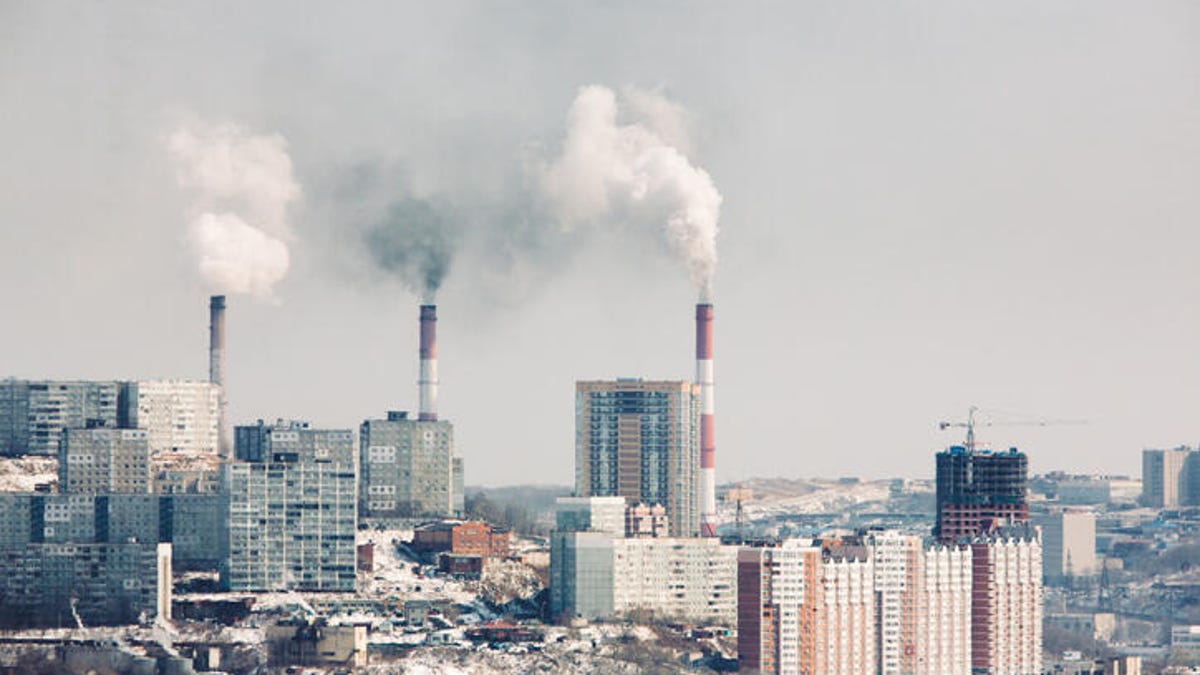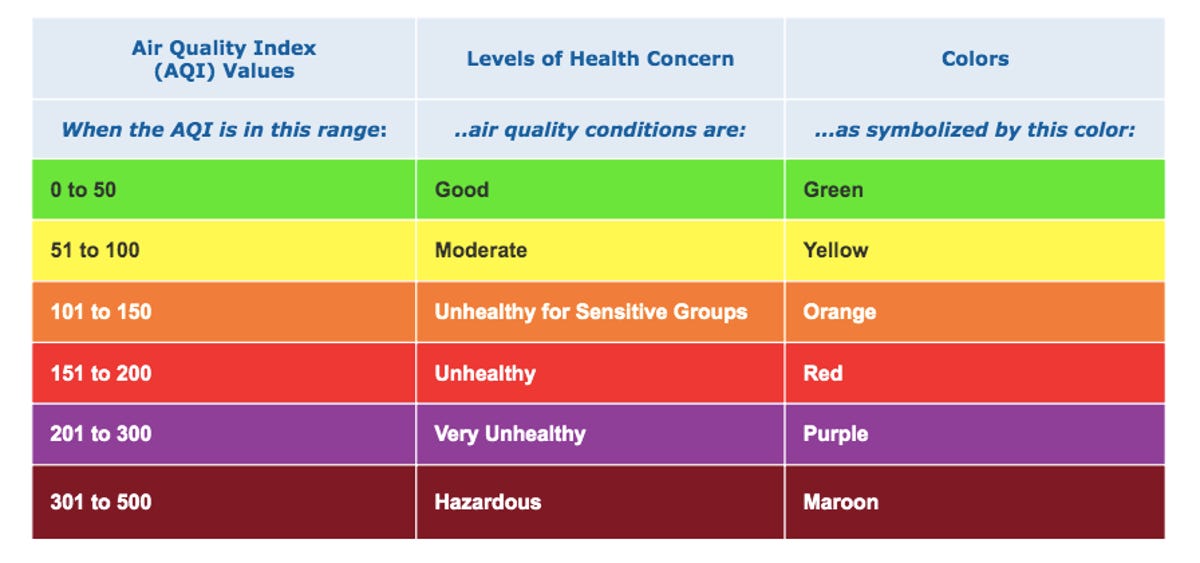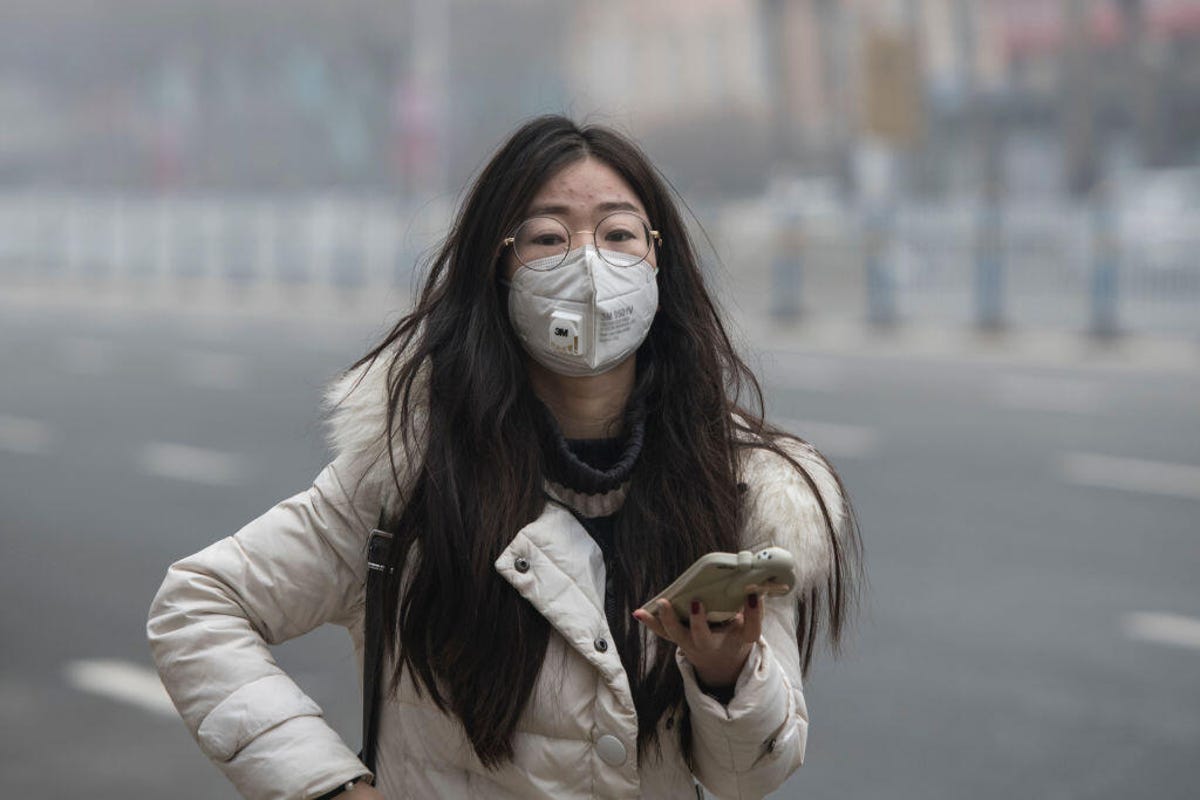Air Quality Index: What to Do When Air Quality Is Bad in Your Area
There are simple ways to protect yourself from smoke, pollution and overall poor air quality.
Air pollution is more common in big cities but can happen anywhere.
As wildfires ravage Canada and smoke bellows down into the eastern US, air alerts have been issued in several cities and regions and many are asking themselves how they can defend against smoke and overall poor air quality. Will adding an air purifier help? (Spoiler alert: It will.) And should you avoid outdoor activities completely when air quality is bad?
Those on the West Coast are used to dealing with smoky conditions and compromised air quality. On the East Coast, there are fewer instances where air quality becomes hazardous, but protecting yourself from even a few hours of smoky air is important. This is particularly true for the elderly, young children and those with respiratory conditions.
Thankfully, a resource called the Air Quality Index, or AQI, was created by the US Environmental Protection Agency to help monitor air quality so you can understand the impact it may have on your health. So, how important is the AQI and what should you do if the fires and smoke are affecting the air quality where you are?
What is the AQI?
The AQI reports on how clean or polluted the air in your area is, and what effects breathing the outdoor air may have on your health. The AQI forecast is available in 400 US cities, and you can view regional maps that rate the air quality across the US and Canada. The index is on a scale of 0 to 500 (0 being clean air and 500 being heavy pollution). Outside the US, you can check the World Air Quality Index for air pollution ratings across the globe.
The AQI takes into account five of the major air pollutants that are regulated under the Clean Air Act. These pollutants are ground-level ozone, particle pollution, carbon monoxide, sulfur dioxide and nitrogen dioxide.
The Air Quality Index scale rates air quality on a scale from 0 to 500, with 0 being the cleanest to 500 being the most dangerous.
What each AQI category means:
What to do if the air quality is poor in your area
A face mask can protect you from air pollution, as long as it's the right kind of mask.
If the air quality in your area is compromised, there are several things you can do to protect yourself. Special attention should be paid to those who have compromised respiratory, lung or heart health, as well as children and older adults who are, in general, more vulnerable.
If the air quality is unhealthy (101-150), the AQI website recommends that people who are sensitive to pollution (i.e. people with lung disease, asthma, children, older adults and outdoor workers) reduce or limit the time they spend working or doing activities outside. If the air quality is in a more moderate range (51-100) you can still protect yourself by reducing time spent outdoors if you're concerned that you're sensitive to pollution levels.
If the air quality falls in the unhealthy or red range (151-200), the AQI recommends that people with compromised health avoid prolonged outdoor work or activity. Everyone else who is not health-compromised should limit the time they spend outdoors.
If the air quality is in the very unhealthy or hazardous range, chances are an emergency alert will be issued by media outlets, weather apps and more. If this is the case, everyone should avoid going outside and being exposed to the air as much as possible. People with compromised health should not go outside at all to protect themselves.
If you are concerned about the air quality around you, wearing a face mask anytime you are exposed to the compromised air can help. Make sure your mask is rated as N95 and fits snugly over your nose and mouth. Surgical masks, medical masks and bandanas tied over your noise and mouth are not designed to filter out harmful air pollutants and will not protect you.



